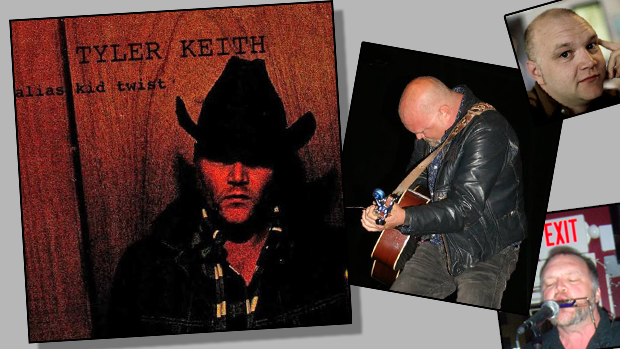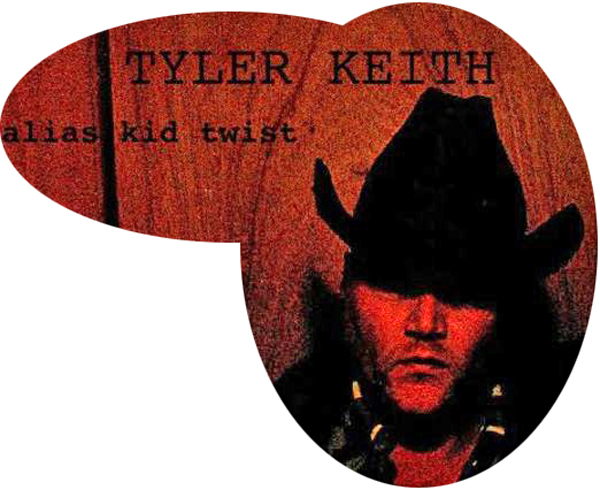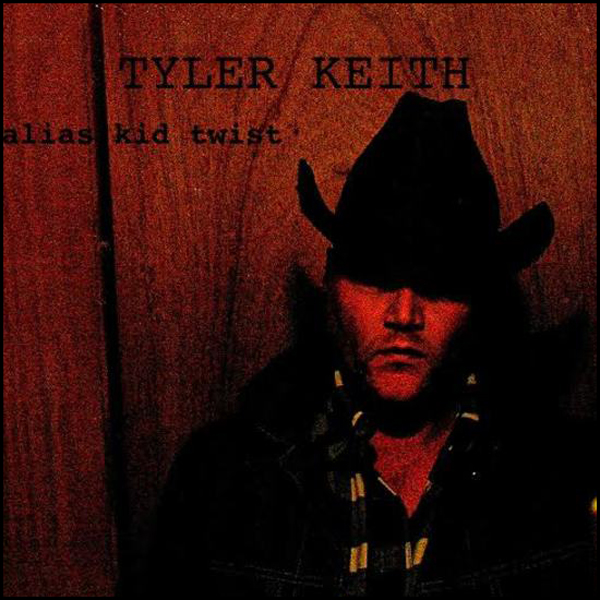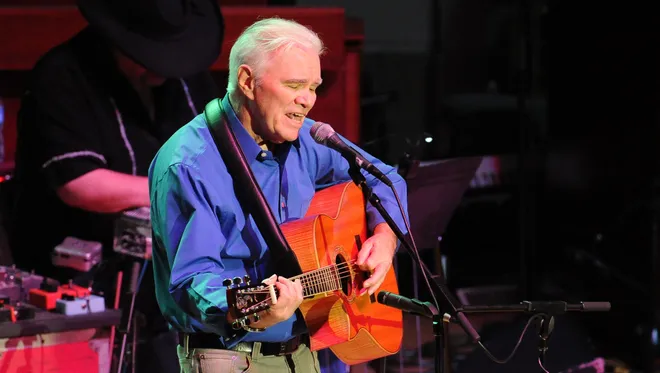
 Tyler Keith’s new solo album, Alias Kid Twist, is a virtual tribute to a kind of American music made during the middle of the last century, as well as to an America that made the music possible and has all but disappeared with the music. All thirteen songs are his and many of them reflect a direct connection with artists like the early Dylan, Jerry Lee Lewis, the Bobby Fuller 4, and Jimmie Rodgers, among others.
Tyler Keith’s new solo album, Alias Kid Twist, is a virtual tribute to a kind of American music made during the middle of the last century, as well as to an America that made the music possible and has all but disappeared with the music. All thirteen songs are his and many of them reflect a direct connection with artists like the early Dylan, Jerry Lee Lewis, the Bobby Fuller 4, and Jimmie Rodgers, among others.
 But let me be quick to point out there are no misplaced sentimental lyrics about mules and cotton wagons here. While the songs’ musical roots may reach down into the past, their narrative expression is here and now. The song “Kid Twist” is so malevolent it makes Kurt Weill’s “Mack the Knife” sound like a nursery rhyme.
But let me be quick to point out there are no misplaced sentimental lyrics about mules and cotton wagons here. While the songs’ musical roots may reach down into the past, their narrative expression is here and now. The song “Kid Twist” is so malevolent it makes Kurt Weill’s “Mack the Knife” sound like a nursery rhyme.
At the core of these songs there is a powerful sense of a conflict giving rise to the music and lyrics. The kind of conflict that has to do with a songwriter who is a rebel at heart and is trying to reconcile this inner self with the world—without winding up at Parchman. As Emerson once wrote, “Society everywhere is in conspiracy against the manhood of every one of its members.”

As we all know, assuming the role of an artist in our society exacts its costs. Our economic structure severely penalizes those who don’t become cogs in its oligarchical system that functions primarily to benefit big business, corporations, the Republican Party, Wall Street, and the Pentagon: the same people who would nail Jesus Christ to the cross a second time if given the chance.
The rebel as artist doesn’t have it in them to accede to this vaunted white-collar hierarchy reserved largely (but not exclusively) for those with a sense of entitlement. The sociologist C. Wright Mills has written of this stratum of our society: “The white-collar people slipped quietly into modern society. Whatever history they have had is a history without events; whatever common interests they have do not lead to unity; whatever future they have will not be of their own making.” By contrast, an artist knows full well he or she has created their own fate along with their art and accepts that fate with the unflinching stoicism of a frontline Spartan soldier. Check out the CD’s “Sisyphus Blues” for an update on this kind of talk.
Tyler Dawson Keith’s nostalgia—if that’s what it is—for an older, truer American music and therefore an older, mythical American time, as evidenced in Alias Kid Twist, harkens back to Woody Guthrie’s old blue-collar dream of America—to his prayerful songs and prose that gave voice to a brand of American individualism personified by underdogs and outcasts, characters that live in the songs of Tyler Keith. ![]()
–
This article was originally printed in The Local Voice #220 (published January 8, 2015).
To download a PDF of this issue, click here.



